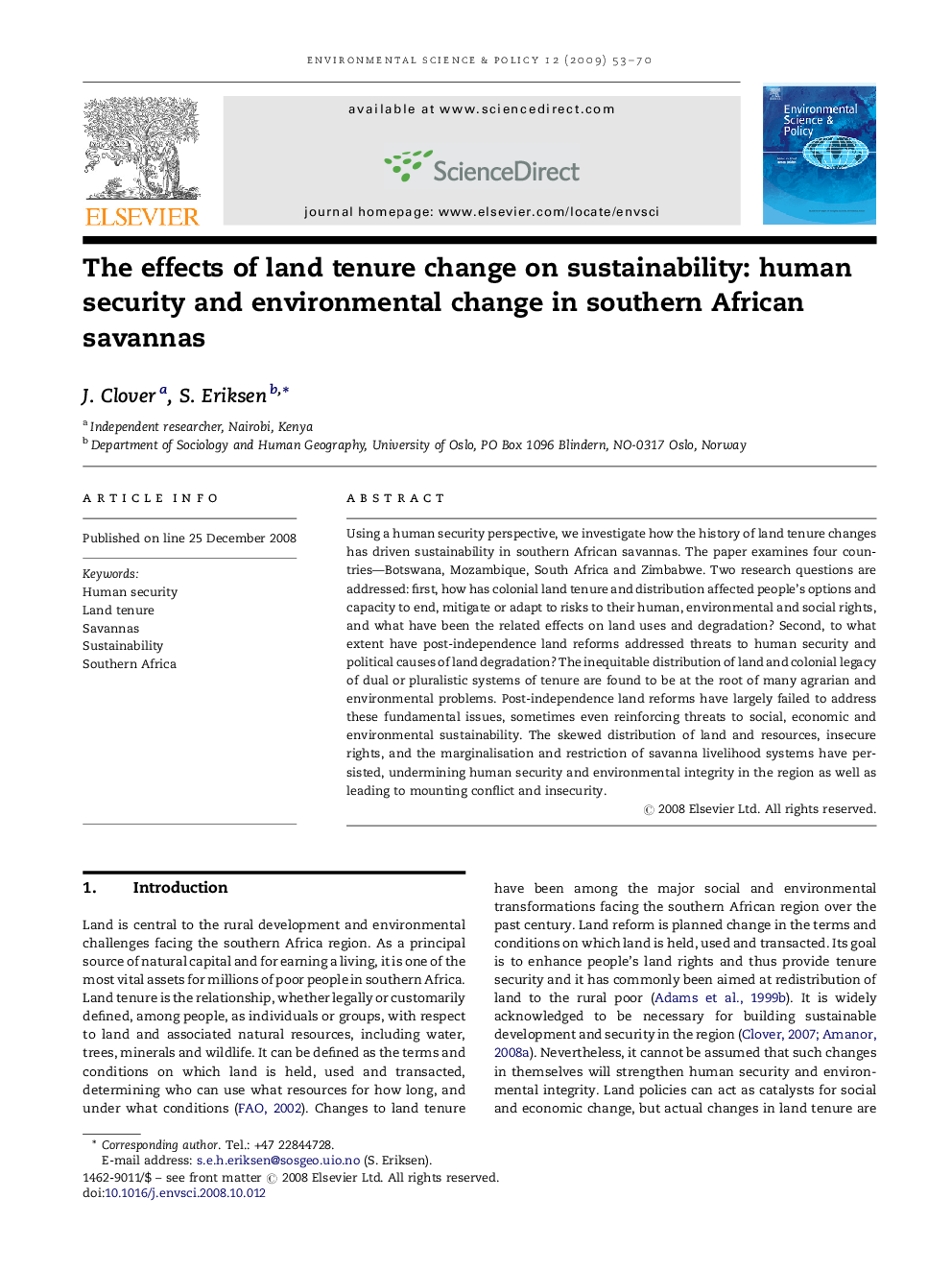| Article ID | Journal | Published Year | Pages | File Type |
|---|---|---|---|---|
| 1054168 | Environmental Science & Policy | 2009 | 18 Pages |
Using a human security perspective, we investigate how the history of land tenure changes has driven sustainability in southern African savannas. The paper examines four countries—Botswana, Mozambique, South Africa and Zimbabwe. Two research questions are addressed: first, how has colonial land tenure and distribution affected people's options and capacity to end, mitigate or adapt to risks to their human, environmental and social rights, and what have been the related effects on land uses and degradation? Second, to what extent have post-independence land reforms addressed threats to human security and political causes of land degradation? The inequitable distribution of land and colonial legacy of dual or pluralistic systems of tenure are found to be at the root of many agrarian and environmental problems. Post-independence land reforms have largely failed to address these fundamental issues, sometimes even reinforcing threats to social, economic and environmental sustainability. The skewed distribution of land and resources, insecure rights, and the marginalisation and restriction of savanna livelihood systems have persisted, undermining human security and environmental integrity in the region as well as leading to mounting conflict and insecurity.
